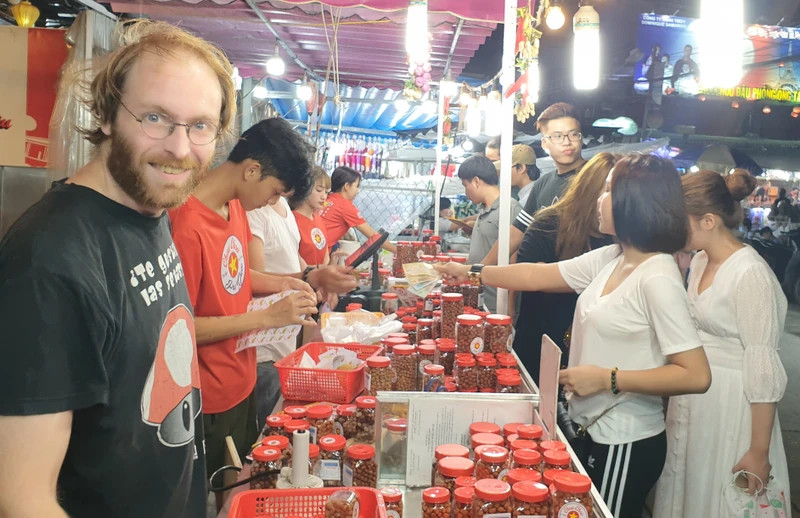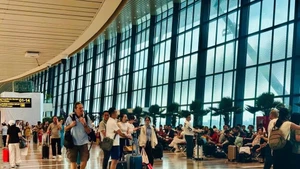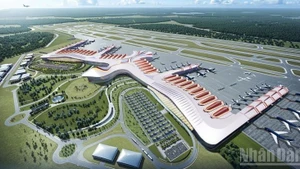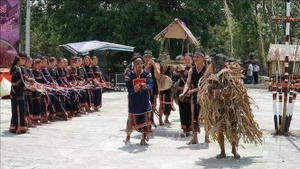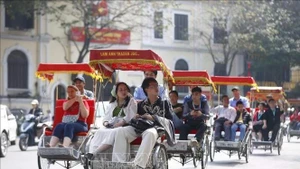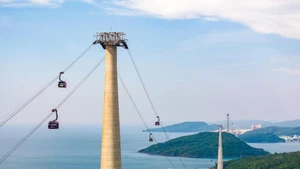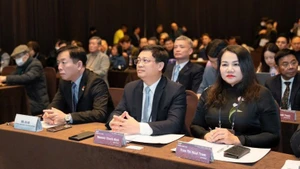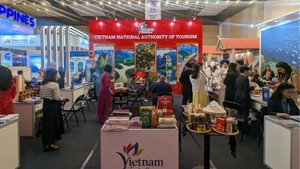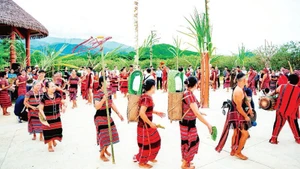Fragmented and limited in scope
As someone who enjoys meeting friends in bustling places on weekends, Quang Anh from Long Bien District often chooses the pedestrian street around Hoan Kiem as his destination.
According to him, this is the busiest destination in Ha Noi at weekends and one of the few places offering unique entertainment, such as live music performances. Events are also frequently held there.
However, he feels that activities on the pedestrian street are largely spontaneous and lack coordination, resulting in limited effectiveness. His biggest complaint is about the food on offer.
Quang Anh said that, based on his experience, tourists mainly come to enjoy the street atmosphere, not necessarily because it is a true night-time economic model.
Decision No. 1129, issued in 2020, approved a national plan to develop the night-time economy in Viet Nam. However, nearly five years into its implementation, economist Dinh Trong Thinh observed that results remain modest compared to the country’s potential. Night-time economic activities are still disconnected across various sectors including entertainment, restaurants, hotels, bars, clubs, music, cinema, arts, festivals, and shopping.
While some localities have rolled out pilot programmes, these efforts remain small-scale and lack a professional framework.
The Ministry of Industry and Trade has also acknowledged that night-time economic activity is mainly limited in scope, with weak links between key components such as entertainment, dining, hotels, bars, arts, and shopping, leading to underwhelming outcomes.
“At present, Viet Nam does not have specific policies to support night-time economic activities. Current regulations remain rigid, especially regarding business operating hours, and there are no differentiated tax or fee mechanisms for night-time versus daytime operations,” the ministry noted. One contributing factor is limited night-time infrastructure, with public transport such as buses and trains still being insufficient and inconvenient.
Letting the night-time economy take flight
In light of these challenges, the Ministry of Industry and Trade has proposed that local authorities develop detailed zoning plans for areas with night-time economic potential. Pilot models should be implemented in selected zones, with results to be assessed before being scaled up.
Equally important is close coordination between departments, agencies and local governments to organise artistic, entertainment and sporting events that are attractive, well-structured and professionally executed.
In particular, there is a need to develop stable and appropriate policies to encourage individuals and businesses to invest in the night-time economy, including easing certain regulatory constraints.
Nguyen Anh Tuan, Director of the Viet Nam Institute for Tourism Development Research, noted that major global cities such as Bangkok (Thailand), Seoul (the Republic of Korea), Tokyo (Japan), and New York (the US) have successfully tapped into this potential, turning night-time activities into economic and cultural highlights.
According to him, one key driver of the night-time economy is street-level commerce — a sphere closely tied to urban community life and consumption patterns.
Models such as night markets, street food stalls, and pedestrian zones combined with dining and entertainment services are integral components of the night-time economic ecosystem in many global cities.
In Viet Nam, however, pavement-based commerce still faces numerous obstacles due to inconsistent management policies, resulting in fragmented, ad-hoc operations that fail to appeal strongly to both domestic and international visitors.
This underscores the urgent need for a comprehensive strategy to plan and manage pavement-based economic activities, not only to ensure urban order but also to make them a dynamic part of the night-time economy and a new engine for growth.
Moreover, pedestrian streets, night markets and culinary streets should be expanded and professionally managed, with attention to hygiene, food safety, fire prevention and public security.
Night-time economy — a global trend
Across the European Union (EU), most major cities have developed their own vibrant night-time economies. National governments delegate authority and encourage local city administrations to roll out night-time economic initiatives that align with their cultural, artistic, culinary, and sporting identities.
In the UK, in early 2025, the Mayor of London established a special task force dedicated to promoting the night-time economy in the capital. This group of 11 independent experts was tasked with identifying the challenges and opportunities facing the sector and proposing improvements.
Although the UK is a pioneer in this field — with peak annual revenues reaching £66 billion, equivalent to 6% of GDP — and already has dedicated institutions for overseeing night-time economic development, it continues to explore policy innovations to help the sector flourish.
In New York (the US), nearly all services are open for night-time business, from artistic performances and exhibitions to sports, bars, and gastronomy, generating annual revenue of some 19 billion USD for the city.
